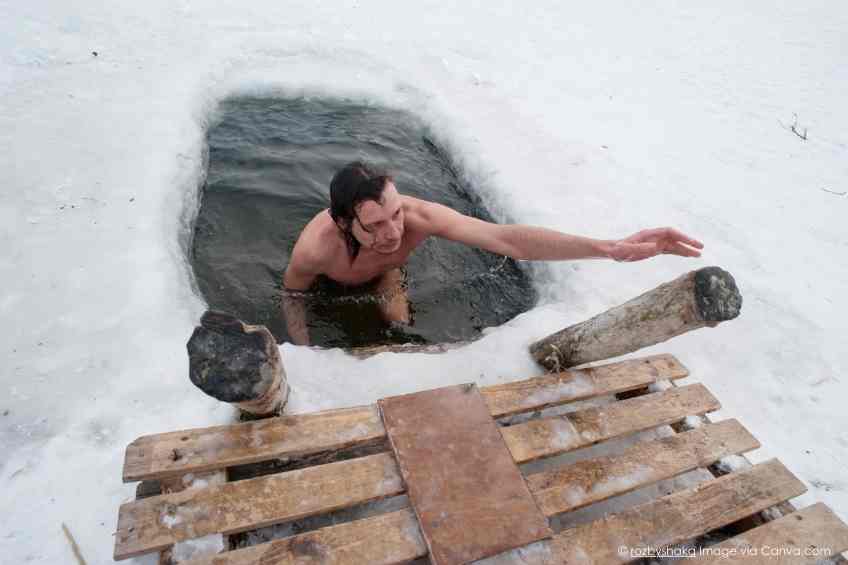By John Salak –
Pretty much everyone is aware of the New Year’s Day ritual when thousands if not hundreds of thousands of people worldwide strip down to bathing suits during freezing weather conditions and take a quick dip in some decidedly cold ocean water. In China, this tradition takes on a unique twist, as many embrace the concept of ‘Chinese chill with winter swimming,’ turning icy dips into a year-round practice believed to boost health and resilience.
WellWell reported just last year that the Coney Island Polar Bear Club has orchestrated these plunges for more than 120 years, with various participants reporting the experience as spiritual, inspirational and well, just plain chilling. WellWell also reported that for some these polar dips could be just plain dangerous.
Well, don’t try telling the Chinese—at least the ones that live near Harbin—that icy dips could be harmful. These cold-defying residents and visitors have taken the concept of winter swims to a whole new and freezing level. And they’re doing this daily in a place in northeast China that’s dubbed appropriately enough: Ice City.
Their freezing swims are taken in a “pool” that is carved out of the frozen Songhua River, which forms a new four-inch layer of ice each night that must be removed each morning to allow these dippers. The opening is several feet wide by 30 feet long.
On a balmy day, air temperature may just reach ten degrees Fahrenheit. Little wonder that some swimmers report that they are already numb before they ever hit the water.
Winter swimming is apparently widely popular with the Chinese, many of whom practice year-round all over the country for the chance to dive into the frigid Songhua come January and February. Age is also no barrier, as many claim these plunges provide all sorts of physical and mental benefits for both the young and old.
Chen Xia, 56, for example, reports she’s been winter swimming for two decades and that even an ongoing cold didn’t stop her from diving in this year. In fact, she comes to Harbin from her home about 1,000 miles away to gain confidence and peace.
“I felt prickling all over my body,” she told local reporters. “But it still made me feel blissful.”
The practice dates back at least 50 years—probably longer, although the official Harbin Winter Swimming Association wasn’t established until 1983. It is little wonder then that this city is considered a “holy land” for China’s winter swimming. Of course, the city’s popularity is probably helped along by its annual and extended winter festival, which features giant ice and snow sculptures and smaller, delicate ones as well.
One 61-year-old swimmer explained that she found joy during her three decades of swimming. She also believes that winter swimmers generally are healthier than others.
“Since the pandemic, we came up with a slogan: Rather suffer through winter swimming than line up at the hospital,” she noted.
You Decang, 76, agreed, claiming that these icy swims not only keep him healthy, they may be the reason he’s never caught a cold. “If I go just one day without winter swimming, I feel quite uncomfortable,” he explained.
Can these freezing swims really be a health boon? Who knows. But it’s okay to wonder whether a billion Chinese can be wrong.













